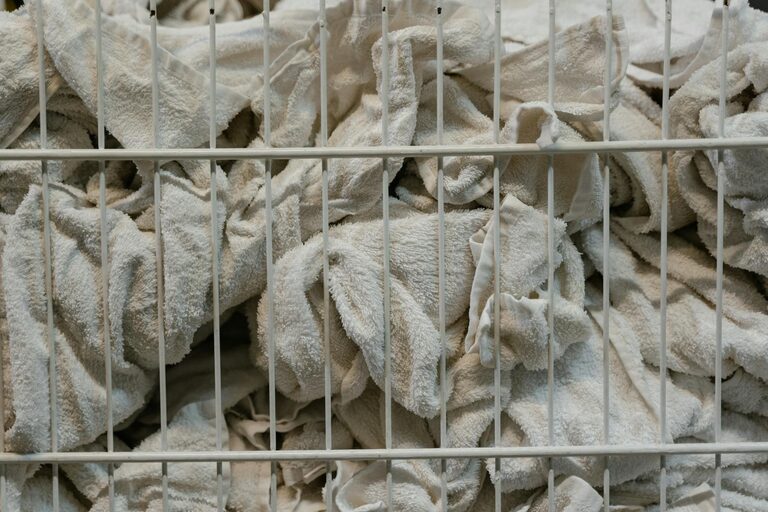Keeping your towels fresh and fluffy can transform your daily routine into a small luxury. No one enjoys wrapping themselves in a stiff, musty towel after a bath or shower. With proper care, your towels can remain soft, absorbent, and inviting wash after wash. In this post, we’ll explore practical tips for maintaining towels, including washing techniques, drying methods, and storage ideas.
Why Towels Lose Freshness and Fluffiness
Towels can become rough, smelly, or flat for several reasons:
– Residue buildup: Detergents, fabric softeners, and minerals from hard water can leave a film on towel fibers.
– Over-drying: High heat and prolonged drying can damage fibers, making towels stiff.
– Improper washing: Using too much detergent or washing in cold water may not clean towels effectively.
– Poor drying and storage: Leaving towels damp or crumpled can lead to mildew and odor.
Understanding these common causes helps you prevent damage and keep towels plush.
Choosing the Right Towels
Before diving into care tips, selecting good-quality towels sets the foundation:
– Material: 100% cotton towels, especially Egyptian or Turkish cotton, are soft and durable.
– Weave: Towels with a terry cloth weave have loops that improve absorbency and softness.
– Weight: A towel’s weight is measured in GSM (grams per square meter). Towels between 400-600 GSM strike a balance between absorbency and quick drying.
Now, let’s focus on care tips to preserve and enhance your towels’ freshness and fluffiness.
Washing Tips for Fresh, Soft Towels
Use the Right Amount of Detergent
Too much detergent can build up on towel fibers, making them stiff and less absorbent. Use the amount recommended on the label, and consider using a liquid detergent designed for delicate fabrics.
Skip Fabric Softeners
While fabric softeners make clothes feel soft, they coat towel fibers with a waxy residue that reduces absorbency. Instead, add half a cup of white vinegar during the rinse cycle every few washes to naturally soften towels and remove buildup.
Wash in Warm Water
Warm water cleans towels more effectively than cold while protecting the fibers better than hot water. If towels are heavily soiled, you can occasionally wash them in hot water, but do so sparingly.
Wash Towels Separately
Avoid washing towels with clothes that produce lint or have zippers and hooks that can damage towel fibers. Washing towels alone or with similar fabrics protects their loops and texture.
Give Towels a Deep Clean Periodically
To remove detergent and mineral buildup, soak towels once a month in a mixture of hot water, half a cup of baking soda, and half a cup of vinegar before washing. This refreshes fibers and eliminates odors.
Drying Tips for Fluffy Towels
Shake Towels Before Drying
Give each towel a good shake to fluff the fibers and reduce clumping before placing them in the dryer or hanging them.
Use Low or Medium Heat
High heat can weaken towel fibers over time and cause stiffness. Dry towels on a lower heat setting or use the “fluff” or “air dry” function if your dryer has one.
Add Dryer Balls or Clean Tennis Balls
Throwing a couple of clean dryer balls or tennis balls into the dryer with your towels helps separate fibers during drying, increasing fluffiness and reducing drying time.
Line Dry When Possible
Drying towels outside in fresh air and sunshine can naturally deodorize and freshen them. If using a clothesline, shake towels occasionally while drying to prevent stiffness.
Avoid Overdrying
Remove towels from the dryer when they are just dry. Overdrying damages fibers and leads to a rough texture.
Storage Tips to Keep Towels Fresh
Store Towels in a Dry, Ventilated Space
Avoid humid bathrooms or cramped closets with poor airflow. Moisture encourages mildew and odors.
Fold Towels Neatly
Fold towels to allow air circulation between layers rather than stacking excessively high piles that trap moisture.
Use Sachets or Natural Fresheners
Place lavender sachets or cedar blocks near towels to maintain a pleasant aroma and deter pests.
Additional Tips for Long-Lasting Towels
– Replace towels every 2–3 years. Over time, fibers wear down beyond repair.
– Avoid using bleach regularly. It weakens fibers and fades colors.
– Remove towels promptly from the washer. Leaving them wet encourages musty smells.
– Rotate towels regularly. Using the same few towels constantly leads to faster wear.
Final Thoughts
Caring for your towels doesn’t have to be complicated. By following straightforward washing, drying, and storage habits, you’ll enjoy soft, fluffy towels that feel great and last longer. These small changes add comfort to your daily routine and help you get the most from your investment in quality towels. Try these tips to keep your towels fresh, fluffy, and inviting season after season!

